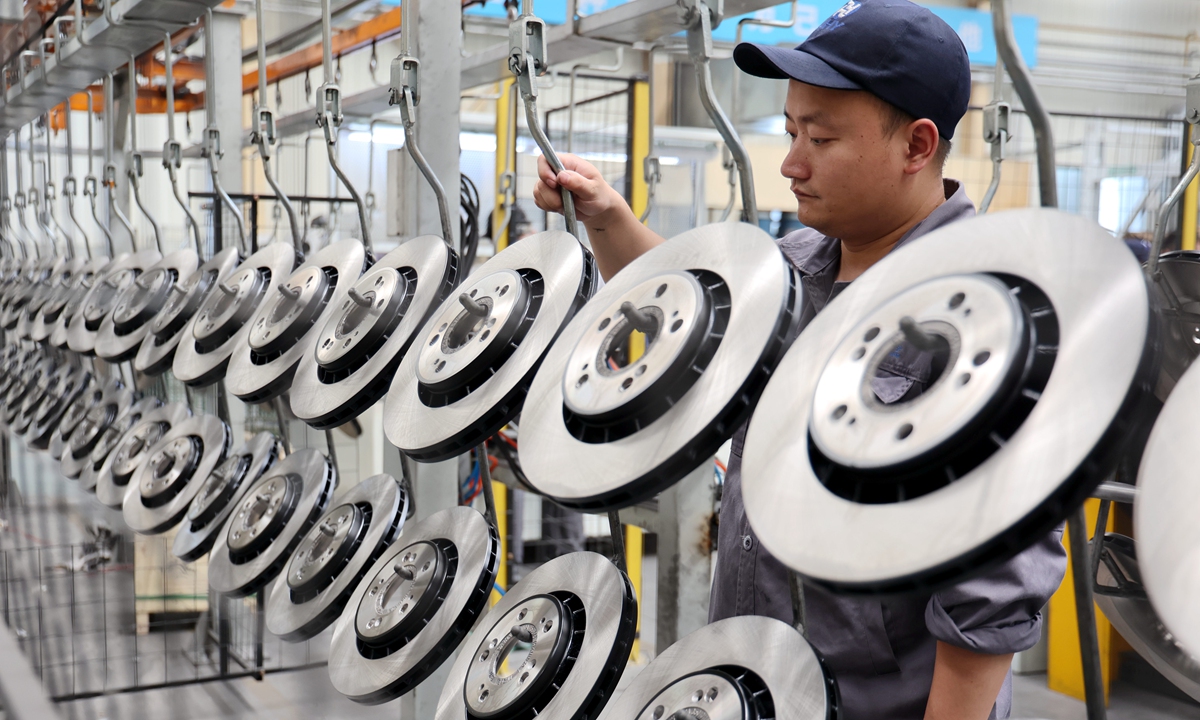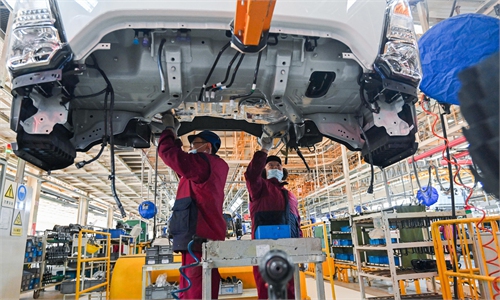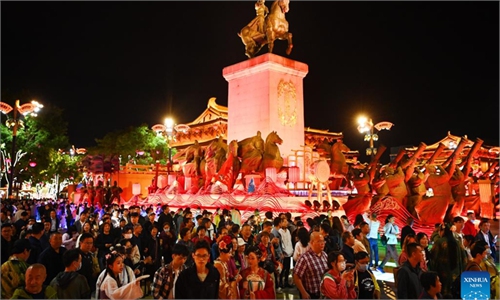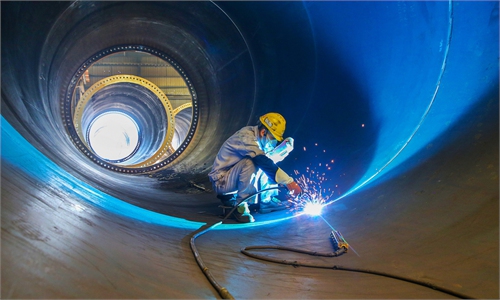Manufacturing PMI edges up in July, indicating China’s economic climate keeps improving

A staffer works on the production line of an auto parts manufacturer in Binzhou, East China's Shandong Province, on July 10, 2023. Since the beginning of this year, market demand for auto parts for enterprises in Binzhou has been substantial, and the production capacity has remained consistently high. In the first quarter, the added value of the city's auto manufacturing industry rose by 14.8 percent year-on-year. Photo: cnsphoto
China's official manufacturing purchasing managers' index (PMI) improved in July though remaining in contraction territory, which some analysts said reflected the growing resilience and vitality of China's industrial sector.
With strong growth-reinforcing signals from the country's top policy-makers and a package of stimulus measures in the pipeline, it is expected that the index are very likely to enter the expansion territory in August.
The official PMI came in at 49.3 this month, up 0.3 percentage points from June, beating expectations, data from the National Bureau of Statistics showed on Monday. A reading below 50 indicates a contraction in the manufacturing sector, while above 50 indicates expansion.
Among the 21 surveyed industrial lines, 10 reported expansion in July, up from 8 in June. There was an overall improvement in the country's manufacturing climate, NBS statistician Zhao Qinghe said.
In terms of industrial scale, the PMI of large industrial enterprises remained flat in July compared with the previous month, while mid-sized enterprises saw their reading grew 0.1 percentage point to reach 49, PMI of small-sized enterprises went up 1 percentage points to 47.4 over the same month, according to a statement on the NBS website.
For sub-indexes, the readings for production and supplier delivery time in July were both above the 50 mark, underscoring acceleration in manufacturing activity.
Meanwhile, the indexes measuring new orders, raw material stockpiles and employment edged lower in July. The sub-index measuring new orders, however, increased by 0.9 percentage point compared with June, reflecting that the market demand has been improving.
Since the start of this month, the production efficiency of industrial sectors including steel, auto and chemicals have edged up slightly compared with the previous month, indicating that market demand is expanding and more enterprises move to replenish their inventory, said Wang Qing, chief macroeconomic analyst at Golden Credit Rating International.
"The sub index of new orders remains low, meaning that exports will continue to weather downward pressure in the third quarter," Wang told the Global Times.
But the overall PMI is poised to rebound in the next two months, market analysts said, thanks to the government's propelling effect of stimulus to stabilize economic growth.
Wu Chaoming, deputy head of Chasing Research Institute, told the Global Times that PMI will likely improve in August to enter the expansion territory and maintained the pace in September.
"The restraint on manufacturing caused by hot weather will wane next month, which is beneficial for growth," Wu said.
Meanwhile, the proposed policy lines mapped out at the top CPC Central Committee Politburo meeting in July include expanding consumer demand, accelerating the issuance of local government bonds, promoting private investment, stabilizing the real estate sector, which will help expand domestic demand and improve confidence, while propel manufacturing sector output, according to Wu.
"The Chinese economy is facing new difficulties and challenges… After a steady shift for the better post-pandemic, China's economic recovery has been progressing with twists and turns. The economy has tremendous resilience and potential for development, and its long-term sound fundamentals remain unchanged," the Politburo meeting stated on July 24.
The meeting called for measures to actively expand domestic demand, do the utmost to ramp up domestic consumption so as to drive economic growth in the second half of the year.
Monday's data also showed that the non-manufacturing PMI, which came in at 51.5 in July, has stood well above the 50-mark for seven consecutive months, indicating vitality in the broader service sectors.



